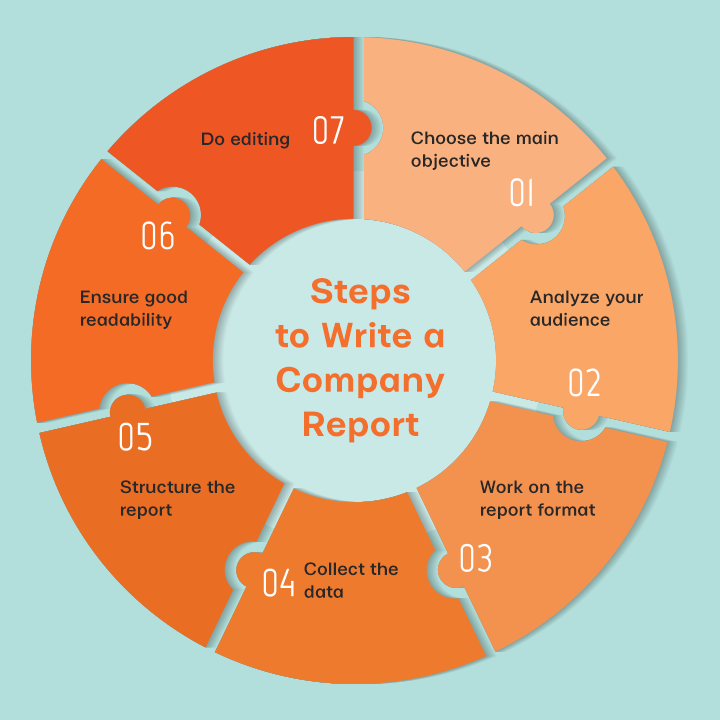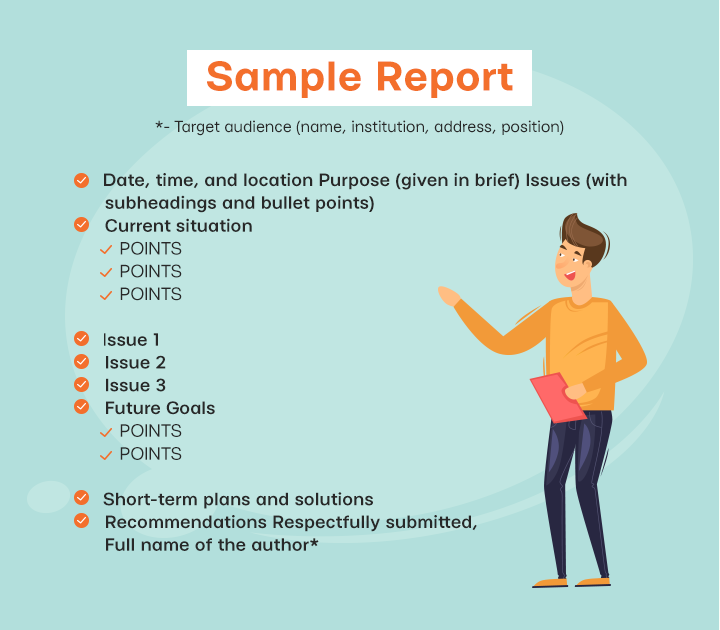Introduction
Report writing is essential for the development of every business as the assessment of certain issues, financial operations and circumstances should be done in a particular report writing format to be effective. Typically, the report writing examples refer to the cases, in which the company senior executive sends a request; and it is important to give an efficient response. The latter generally takes the report format attached to a memo.
For instance, the issue is related to inappropriate wastage in one of the departments. So, the manager asks this department to provide their explanations, and they submit a special document with the problems and solutions highlighted as they know how to report. The company may also use predictive documents to evaluate the current situation and give some recommendations as for the best positioning in the future within an excellent report.
Why and How to Write a Report for a Company
When it goes about academic writing, the question “What is a report?” raises some controversies. Sometimes the term essay can overlap with the term report; so, the question of how to write a report may cause some difficulties. The most essential thing is that a report essay format is generally needed for workplaces, business, scientific subjects, and technical disciplines. Unlike an essay that focuses on reasoning and arguments, the report is based on facts.
So, all guidelines on how to report define this short document as the one composed for a specific audience and purpose. Learning how to create a great business report, one should note that it is a well-structured factual paper that covers an analysis of the problem or situation with the added recommendations.
The tips on reporting always point out that the requirements in terms of content and form of reports may vary in different business organizations and educational courses. At universities, the tutor tells how to produce a formal business report and gives particular instructions.
What is a Report and How to Write One Effectively
Reports differ from essays in that they focus on factual analysis rather than arguments. They are structured documents created for specific audiences and purposes, often used in business, scientific, and technical fields.
Report Structure and Types
A well-structured report typically includes:
- Title Page: Author's name and date
- Summary: Key points, recommendations, and conclusions
- Introduction: Explanation of the problem and arrangement of details
- Body: Sections with corresponding subtitles
- Conclusion: Clear summary of findings
- Recommendations: Solutions in order of priority
- Appendices: Technical details
Formal and Informal Report Writing
Formal reports are time-consuming and detailed, often used in large companies. Informal reports are simpler and used in various types such as feasibility reports, credit reports, sales activity reports, and more.
Steps for Writing a Company Report
- Choose the Main Objective: Engage readers with clarity.
- Analyze Your Audience: Tailor the content to the target readers.
- Work on the Report Format: Use effective design templates.
- Collect Data: Use facts and figures to support your arguments.
- Structure the Report: Organize elements properly.
- Ensure Good Readability: Use visuals and proper formatting.
- Edit Thoroughly: Revise the content multiple times.

Example of Report Writing
Websites give some examples of report writing, which demonstrate the steps in writing a technical report planning and show you how to make a good report writing in practice. There are numerous business report writing tips which can also help you learn how to write a great report.
Here is a report writing example in the sample of structure template:

Conclusion
Every report writing sample demonstrates that a good document is easy to follow and well-organized. Report writing hacks hint at the structured format as the key component of keeping writing on track. Reliable information, the credibility of details, and excellent format will always make a lasting impression. Either you buy report writing online or do it yourself, always have a finishing touch to make sure that all the standards of report writing are met.
Author: Jenna Brandon
Inhouse Tailored Training for Your Team
We provide training programs that are developed by industry, for industry. Our range of programs can be delivered in a way that suits the needs of your business to offer your employees learning that is accessible and flexible.
We add value to your business by providing specialised, flexible and scalable training that meets your training needs. As your workforce grows and evolves, our globally certified and industry-validated learning solutions can assess, train and qualify your employees. For more information on how we can help please visit the in-house training page.
Membership, Stay Connected. Stay Relevant.
Completing a program is a point-in-time exercise that delivers huge value, but there is a next step to maintaining the currency of your skills in the ever-evolving professional world.
Membership is the next step.
A unique platform, membership is designed to ensure that you are in tune and up-to-date with the latest tools, trends and developments. Being a member provides just-in-time training and continuous professional development, and an exclusive and evolving content library informed by subject matter experts and industry leaders.
 Technical Writing Report | What it is and tips on to write one
Communication Skills • Report Writing • Writing Skill
Technical Writing Report | What it is and tips on to write one
Communication Skills • Report Writing • Writing Skill




_165x115_fc3.jpg)




